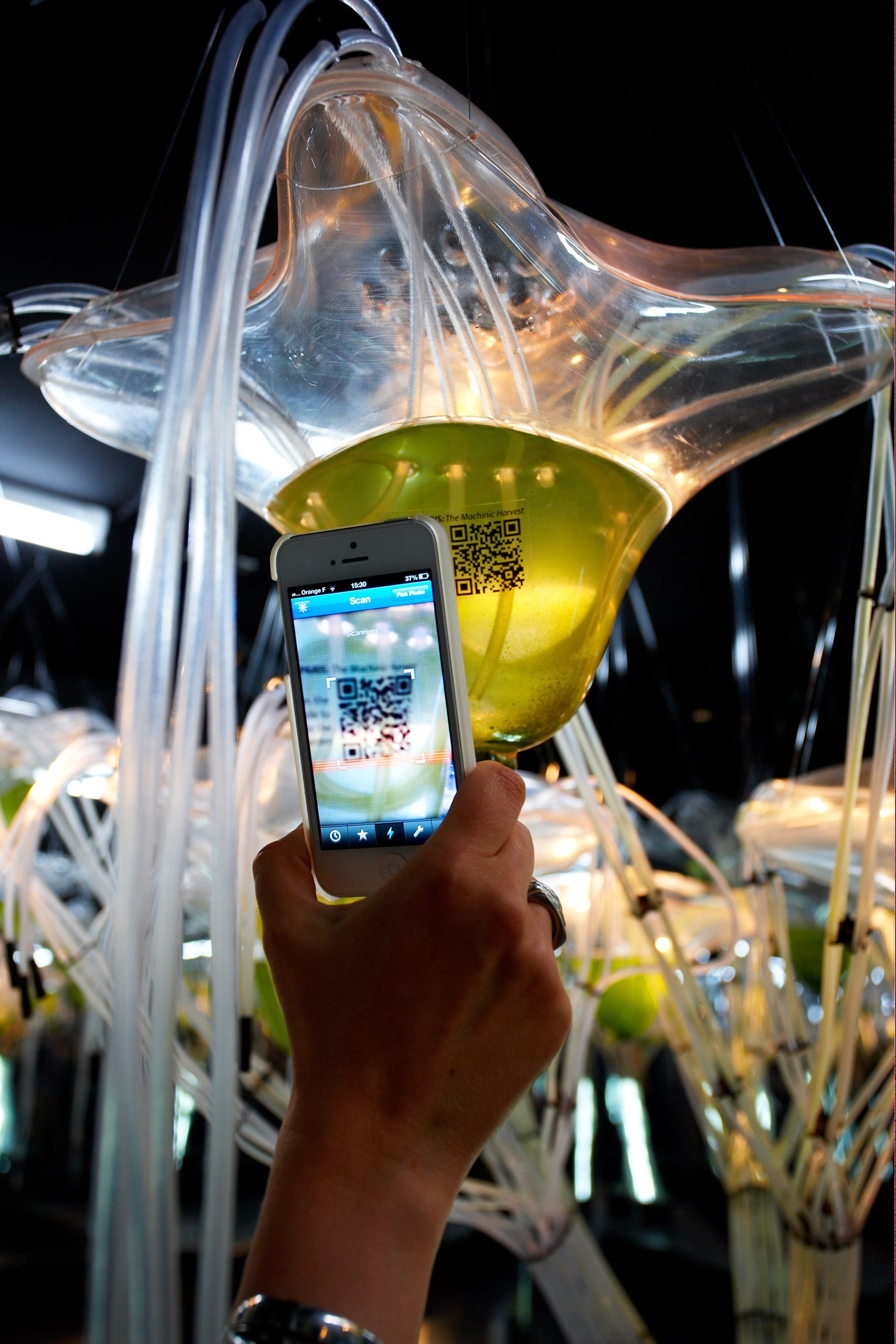As the world’s population grows at an ever faster pace and the effects of global warming threaten crops worldwide, the global reserve of food is reaching an historic low.
Global metropolis like London will soon find themselves in a condition of shortage, perhaps not dissimilar to the one experienced in periods of war. Philosopher Matteo Pasquinelli claims that it is in this periods that the culinary art has demonstrated its ability to expand the horizons of edibility by reinventing the urban landscape as a potentially productive one.
Following this idea, the art collective ecologicstudio, invented HORTUS (Hydro Organisms Responsive to Urban Stimuli), a cyber-gardening device for the development of novel algae farming practices; it stimulates a radical attitude towards urban agriculture that goes far beyond the current fashion for allotments and farmer markets and seeks to reinvent our perception of those interstitial ecologies that are ubiquitous in our metropolis but that escape categorizations; algae exist within invisible or neglected strata where nature escapes human control and proliferates unchecked.
HORTUS radicalizes the notion of urban self-sufficiency through a new cyber-garden prototype, a hanging cloud of bio-pixels designed to stimulate the emergence of novel urban farming practices. Each pixel hosts edible algal micro-organisms and breeds them within an artificial substratum fitted with ambient sensing technologies and virtual interface.
Visitors blow CO2 inside the bio-pixel, adjust the nutrients content, release oxygen and harvest biomass. With smart phones they access its data feeds to nurture the virtual garden, each tweet a new particle in the emergent cyber-gardening cloud
[the next idea] voestalpine art and technology grant, submission video
